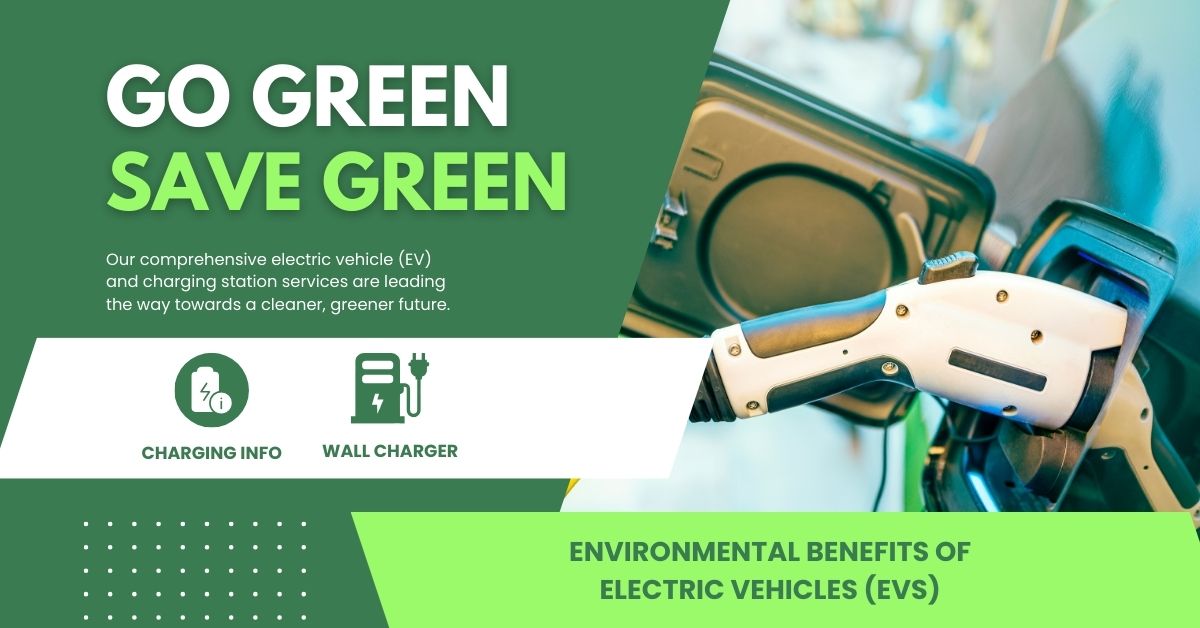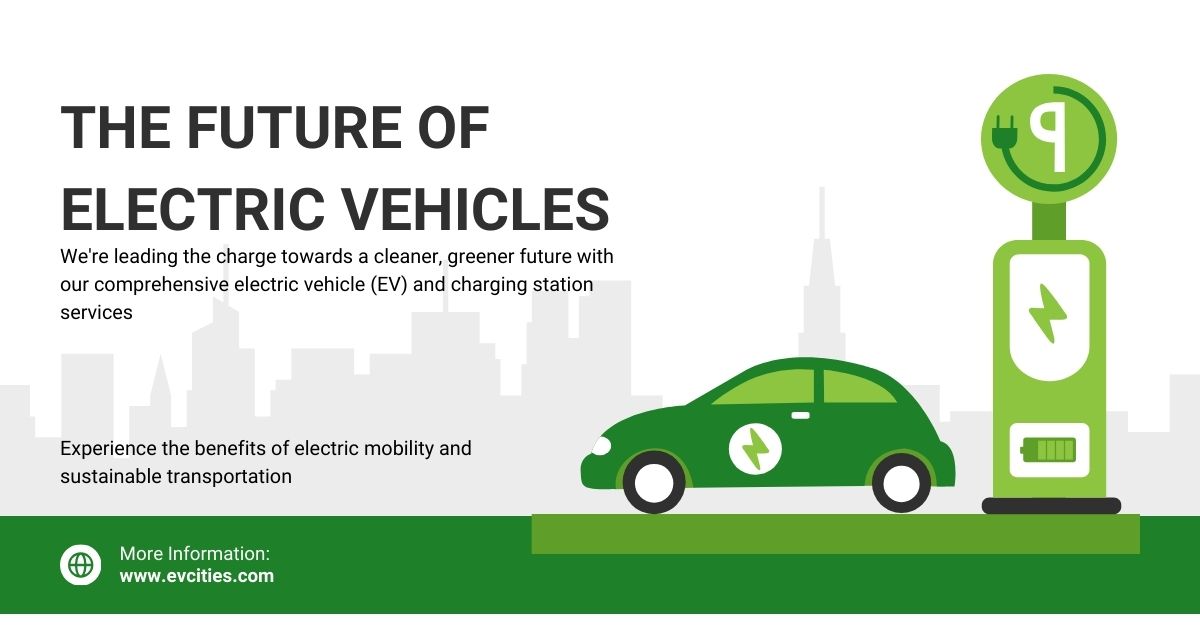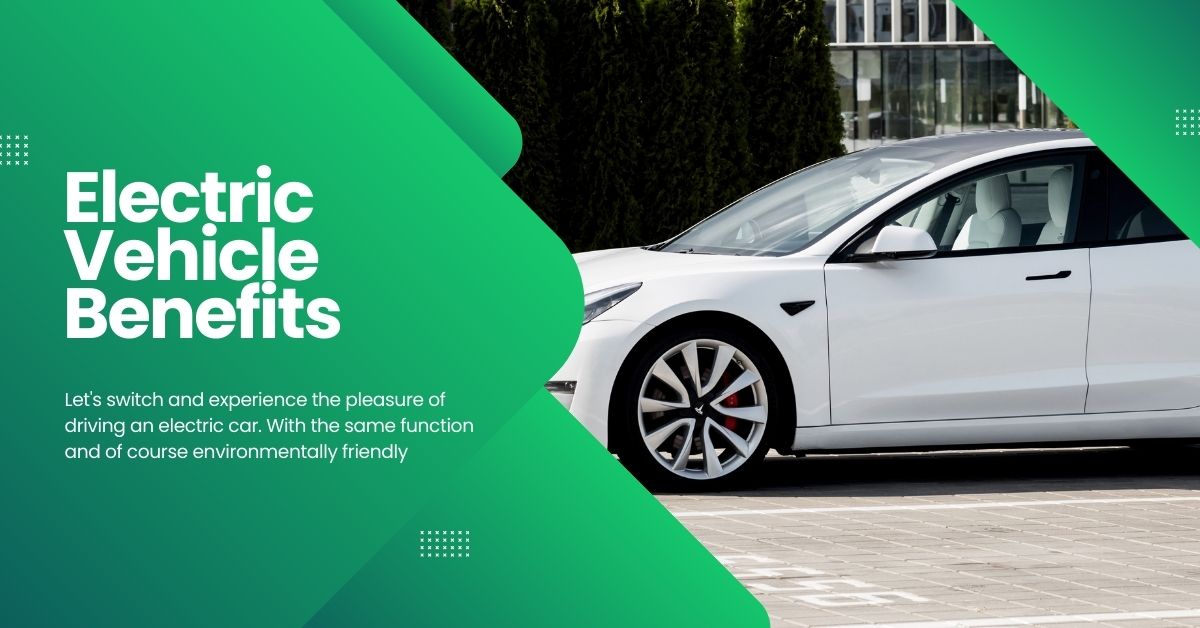Electric Vehicle Benefits
Electric vehicle benefits are including reduced carbon emissions, lower fuel costs, and quieter operation. They promote environmental sustainability by using clean energy sources and reducing dependence on fossil fuels. EVs also provide advanced technology features, tax incentives, and lower maintenance costs, making them an economical and eco-friendly transportation solution.
Electric Vehicle Benefits
Table of Contents
- Introduction
- Environmental Benefits of Electric Vehicles (EVs)
- Reduced Greenhouse Gas Emissions
- Lower Air Pollution and Improved Public Health
- Contribution to Renewable Energy Transition
- Economic Benefits of Electric Vehicles
- Reduced Fuel Costs
- Low Maintenance Costs
- Government Incentives and Tax Benefits
- Technological Advancements and Innovation
- Improved Battery Technology
- Enhanced Vehicle Efficiency
- Autonomy and Smart Integration
- Social and Community Benefits
- Decreased Noise Pollution
- Job Creation in EV and Renewable Sectors
- Development of Smart Cities
- Energy Security and National Benefits
- Reduced Dependence on Fossil Fuels
- Stabilizing National Energy Demand
- Challenges to EV Adoption and Overcoming Them
- Limited Charging Infrastructure
- Range Anxiety and Battery Longevity
- Initial High Purchase Costs
- The Future of Electric Vehicles
- Global EV Market Growth
- Integration with Renewable Energy Grids
- The Role of Policy and Legislation
- Battery Technology Breakthroughs
- EVs and Smart Cities
- Second-Life Batteries and Recycling
- Global Collaboration for EV Development
- Frequently Asked Questions (FAQs) About Electric Vehicle Benefits
- Conclusion
Introduction
Electric vehicles (EVs) have emerged as a cornerstone of the global transition to sustainable transportation. With growing awareness of climate change, environmental pollution, and the limitations of fossil fuel consumption, EVs offer a promising solution to these challenges. This blog post explores the wide range of benefits that electric vehicles provide, from environmental and economic advantages to technological innovations and social improvements. As more countries and companies invest in EV technology, the world is poised to undergo a revolutionary shift in the way we think about transportation and energy use.
Environmental Benefits of Electric Vehicles (EVs)
One of the most significant reasons for the adoption of electric vehicles is their potential to reduce the negative impact of transportation on the environment. EVs offer several environmental benefits that contribute to a more sustainable future.

Reduced Greenhouse Gas Emissions
Transportation is one of the largest sources of greenhouse gas emissions globally, with traditional gasoline and diesel vehicles contributing significantly to the problem. By switching to electric vehicles, we can drastically cut carbon dioxide (CO2) emissions. EVs produce zero tailpipe emissions, and when charged with renewable energy sources such as solar, wind, or hydroelectric power, their carbon footprint becomes even smaller.
Lower Air Pollution and Improved Public Health
In addition to greenhouse gases, internal combustion engine (ICE) vehicles release pollutants like a nitrogen oxides (NOx) and particulate matter (PM), which contribute to poor air quality. Electric vehicles, being free of combustion engines, do not emit these harmful pollutants, leading to cleaner air in cities and a reduction in health issues such as asthma, bronchitis, and cardiovascular problems. Improved air quality can lead to healthier communities and reduce healthcare costs.
Contribution to Renewable Energy Transition
Electric vehicles can act as a catalyst for the adoption of renewable energy. With growing EV adoption, the demand for clean electricity increases, pushing governments and utility companies to invest more in renewable energy infrastructure. Furthermore, EVs can serve as energy storage units, enabling the integration of intermittent renewable energy sources, such as solar and wind, into the grid.
Economic Benefits of Electric Vehicles
Electric vehicles also provide several economic advantages, both for individual consumers and for the economy at large.
Reduced Fuel Costs
One of the most immediate benefits for EV owners is the savings on fuel. Electricity is generally much cheaper than gasoline or diesel, and the cost per mile driven in an electric vehicle is significantly lower than that of an ICE vehicle. In countries where renewable energy is abundant, EV owners can charge their vehicles at even lower costs, further reducing the overall cost of ownership.
Low Maintenance Costs
Electric vehicles have fewer moving parts than traditional gasoline or diesel vehicles, resulting in lower maintenance costs. EVs do not require oil changes, transmission repairs, or exhaust system maintenance, which are typical in ICE vehicles. The regenerative braking system in EVs also reduces wear on brakes, leading to longer-lasting brake components.
Government Incentives and Tax Benefits
Many governments around the world are encouraging the adoption of electric vehicles by offering various incentives and tax benefits. These can include rebates on the purchase of an EV, reduced registration fees, and tax credits. Some countries also provide free access to toll roads and preferential parking for electric vehicles, making ownership even more attractive.
Technological Advancements and Innovation
The rise of electric vehicles has driven significant technological advancements and innovation in the automotive and energy sectors.
Improved Battery Technology
Battery technology is at the heart of the EV revolution. In recent years, we have seen tremendous progress in the development of lithium-ion batteries, leading to increased energy density, faster charging times, and longer ranges. Ongoing research into solid-state batteries and other innovative technologies promises to further enhance the performance and safety of EVs, making them even more competitive with traditional vehicles.
Enhanced Vehicle Efficiency
Electric vehicles are inherently more efficient than internal combustion engine vehicles. EVs can convert around 77% of the electrical energy from the grid to power the wheels, compared to only about 12%–30% for gasoline vehicles. This higher efficiency translates to lower energy consumption and a reduced environmental impact.
Autonomy and Smart Integration
Many modern electric vehicles are equipped with advanced driver-assistance systems (ADAS) and autonomous driving features. These technologies not only improve safety but also enhance the overall driving experience. Additionally, EVs are often designed with smart connectivity in mind, allowing for integration with home energy systems, smart grids, and vehicle-to-grid (V2G) technologies that enable EVs to return energy to the grid during peak demand periods.
Social and Community Benefits
Beyond environmental and economic benefits, electric vehicles also contribute to improved quality of life and social well-being.

Decreased Noise Pollution
One of the often-overlooked benefits of electric vehicles is their quiet operation. Unlike traditional vehicles, EVs produce minimal noise, especially at lower speeds. This can lead to quieter cities, reduced noise pollution, and a more peaceful environment for urban residents. The reduction in noise can also contribute to better mental health and reduce stress levels in busy metropolitan areas.
Job Creation in EV and Renewable Sectors
The growing electric vehicle industry has created numerous job opportunities in manufacturing, research and development, and infrastructure development. As the demand for EVs and renewable energy grows, more jobs are being created in sectors such as battery manufacturing, charging station installation, and energy storage solutions. This job creation can help stimulate local economies and reduce unemployment in regions where these industries are expanding.
Development of Smart Cities
Electric vehicles play a key role in the development of smart cities, where technology and sustainability are integrated into urban planning. EVs, along with renewable energy sources and advanced transportation systems, can help cities reduce their carbon footprint and improve mobility for residents. In smart cities, EVs can be seamlessly integrated into public transportation networks, reducing traffic congestion and improving overall efficiency.
Energy Security and National Benefits
Electric vehicles also offer significant benefits in terms of national energy security and energy independence.
Reduced Dependence on Fossil Fuels
As more countries strive to reduce their reliance on imported oil and other fossil fuels, electric vehicles offer a viable alternative. By shifting to electricity as a primary fuel source for transportation, countries can diversify their energy mix and reduce vulnerability to fluctuations in global oil prices. This can improve national energy security and decrease the economic impact of oil price shocks.
Stabilizing National Energy Demand
The adoption of electric vehicles can help stabilize national energy demand. As EVs become more popular, the electricity demand will increase, encouraging the expansion of renewable energy capacity. Moreover, with the use of smart charging technologies and vehicle-to-grid systems, EVs can help balance electricity demand during peak hours, reducing the need for additional power generation capacity.
Challenges to EV Adoption and Overcoming Them
While the benefits of electric vehicles are clear, there are still some challenges to widespread adoption.
Limited Charging Infrastructure
One of the biggest barriers to EV adoption is the availability of charging infrastructure. In many regions, especially in rural areas, the lack of charging stations can deter potential EV buyers. However, governments and private companies are increasingly investing in the expansion of EV charging networks. Innovations such as ultra-fast chargers and wireless charging are also being developed to make charging more convenient and efficient.
Range Anxiety and Battery Longevity
Range anxiety, or the fear that an electric vehicle will run out of power before reaching a charging station, remains a concern for many consumers. Although modern EVs have significantly improved their driving range, the concern persists. To address this, manufacturers focus on developing batteries with longer ranges and faster charging capabilities. Additionally, advancements in battery recycling and second-life battery usage are helping to extend the lifespan of EV batteries.
Initial High Purchase Costs
The upfront cost of electric vehicles is generally higher than that of traditional gasoline vehicles, primarily due to the cost of the battery. However, with technological advancements and increased production scale, the cost of EVs is gradually decreasing. Government incentives and rebates also help offset the higher purchase price, making EVs more affordable for consumers.
The Future of Electric Vehicles
The future of electric vehicles (EVs) is brimming with potential, driven by technological advances, growing environmental consciousness, and supportive government policies. As the world shifts towards cleaner energy and smarter transportation systems, the EV industry is expected to experience substantial growth in the coming decades.

Global EV Market Growth
The electric vehicle market has been growing, with more automakers, governments, and consumers embracing the transition. According to forecasts, EV sales could account for more than 50% of all vehicle sales worldwide by 2040. Major automotive manufacturers like Tesla, General Motors, Volkswagen, and BMW are making substantial investments in EV technology and infrastructure. Many countries have also set ambitious targets for phasing out internal combustion engine (ICE) vehicles. For instance, Norway aims to ban the sale of new gasoline and diesel cars by 2025, while the UK and Germany are targeting 2030. This shift will further accelerate the global adoption of EVs.
Growth in EV adoption is also expected in emerging markets, where the combination of increasing urbanization, government policies, and decreasing battery costs will make electric vehicles a feasible option for a wider demographic.
Integration with Renewable Energy Grids
One of the most exciting developments in the future of electric vehicles is their potential to integrate with renewable energy grids. As EV adoption increases, the electricity demand will rise, necessitating the expansion of renewable energy sources such as solar and wind power. EVs can also play an active role in stabilizing energy grids through technologies like vehicle-to-grid (V2G) systems. V2G allows EVs to store excess energy and return it to the grid during periods of peak demand, effectively turning vehicles into mobile energy storage units. This capability will be particularly useful in regions with intermittent renewable energy generation.
In the future, EV owners could also benefit financially by selling stored energy back to the grid, helping to create a more dynamic and sustainable energy ecosystem.
The Role of Policy and Legislation
Government policy will be a key driver in the future growth of electric vehicles. Many governments have introduced incentives such as tax credits, rebates, and subsidies to encourage the purchase of EVs. In addition, policies that set stricter emissions standards and phase out ICE vehicles are creating a regulatory environment favorable to EV adoption. Countries like China, the United States, and those in the European Union are implementing aggressive policies to accelerate the transition to electric vehicles.
Beyond consumer incentives, governments are investing in the development of charging infrastructure, mandating that automakers produce a certain percentage of electric vehicles, and supporting research into battery technology. As policy support grows, the barriers to EV adoption, such as cost and range anxiety, are expected to diminish further.
Battery Technology Breakthroughs
Battery technology is expected to undergo significant advancements in the coming years, which will be critical to the continued growth of the EV market. Innovations such as solid-state batteries, lithium-sulfur batteries, and even graphene-based batteries are being developed to improve energy density, reduce charging times, and extend the lifespan of EV batteries. These breakthroughs could lead to electric vehicles with ranges comparable to or even greater than traditional gasoline-powered vehicles, addressing one of the key concerns of potential EV buyers.
With the development of ultra-fast charging technologies, future EVs may be able to charge in a matter of minutes, making long-distance travel more convenient and further reducing range anxiety.
Autonomous Driving and Shared Mobility
The future of electric vehicles is closely linked to the rise of autonomous driving and shared mobility services. As automakers and tech companies continue to develop autonomous driving technologies, electric vehicles are expected to be at the forefront of this revolution. Many autonomous vehicle (AV) prototypes are already being developed with electric powertrains, as they are easier to integrate with the complex electronic systems required for self-driving technology.
The growth of shared mobility services, such as ride-hailing and car-sharing platforms, also presents a significant opportunity for electric vehicles. As cities aim to reduce traffic congestion and carbon emissions, EVs could become the preferred choice for shared transportation services. Autonomous EV fleets could provide efficient, cost-effective, and environmentally friendly transportation options in urban areas.
EVs and Smart Cities
Electric vehicles will play a vital role in the development of smart cities. Future cities will be designed with sustainability, connectivity, and efficiency in mind, and EVs will be integral to achieving these goals. Smart cities will likely feature extensive EV charging networks, integrated public transportation systems, and advanced traffic management solutions that prioritize EVs and reduce emissions.
Connected EVs will also contribute to the development of smart transportation systems that use real-time data to optimize traffic flow, reduce congestion, and minimize energy consumption. For example, smart traffic lights and road infrastructure can communicate with EVs to optimize routes and ensure smoother travel.
Second-Life Batteries and Recycling
As the EV market grows, there will be an increased focus on the lifecycle of electric vehicle batteries. While EV batteries typically last for several years, their performance eventually declines to the point where they are no longer suitable for use in vehicles. However, these “second-life” batteries can still be repurposed for other applications, such as energy storage for homes, businesses, and power grids.
In addition to second-life uses, advancements in battery recycling will play a crucial role in the sustainability of the electric vehicle industry. Recycling EV batteries not only helps recover valuable materials like lithium, cobalt, and nickel but also reduces the environmental impact of battery production and disposal. Several companies are already developing innovative recycling methods to improve the efficiency and profitability of battery recycling.
Global Collaboration for EV Development
The future of electric vehicles will also be shaped by global collaboration among governments, automakers, tech companies, and energy providers. International agreements on reducing carbon emissions, such as the Paris Agreement, are pushing countries to work together to accelerate the transition to electric transportation. Automakers are forming partnerships with battery manufacturers and technology companies to develop more efficient EVs and charging solutions.
Global supply chains will continue to evolve to meet the increasing demand for EV components, especially batteries. Countries rich in key minerals used in battery production, such as lithium, cobalt, and nickel, will play a significant role in the future of EV manufacturing.
Frequently Asked Questions (FAQs) About Electric Vehicle Benefits
1. How do electric vehicles (EVs) help the environment?
They also contribute to lowering the carbon footprint, especially when powered by renewable energy.
2. Are electric vehicles cheaper to operate than gasoline cars?
Yes, EVs have lower operational costs because electricity is generally cheaper than gasoline. Additionally, EVs have fewer moving parts, leading to reduced maintenance costs.
3. What are the financial incentives for buying an electric vehicle?
Many governments offer incentives like tax credits, rebates, and grants to encourage EV adoption. These incentives can significantly lower the purchase cost of an EV.
4. Do electric vehicles require less maintenance?
Yes, EVs require less maintenance than traditional vehicles. They have fewer mechanical components, no oil changes, and fewer parts that wear out, such as belts or spark plugs.
5. How does driving an EV improve energy efficiency?
EVs are highly efficient in converting energy from the grid into vehicle movement, with electric motors having efficiencies of around 85-90%, compared to 20-30% for internal combustion engines.
6. Can switching to electric vehicles help reduce dependence on fossil fuels?
Absolutely! By reducing the reliance on gasoline and diesel, EVs promote the use of cleaner, alternative energy sources like solar, wind, and hydropower.
7. How long do electric vehicle batteries last?
EV batteries typically last between 8-15 years, depending on usage patterns and climate conditions. Many manufacturers offer warranties covering battery life for up to 8 years or 100,000 miles.
8. What impact do electric vehicles have on noise pollution?
EVs operate much more quietly than gasoline vehicles, helping to reduce noise pollution in urban areas, which is beneficial for community health and well-being.
9. Are electric vehicles safe to drive in bad weather conditions?
Yes, EVs are designed with advanced safety features and are safe to drive in various weather conditions. The battery packs are sealed and positioned to lower the vehicle’s center of gravity, improving stability.
10. How does EV adoption impact the future of energy and transportation?
The rise of EVs is driving advancements in energy infrastructure, including the expansion of renewable energy sources, smarter grids, and charging networks. This shift will play a crucial role in the future of sustainable transportation.
Conclusion
The benefits of electric vehicles extend far beyond just reducing emissions. They provide environmental, economic, and social advantages that contribute to a sustainable and prosperous future. As technological advancements continue to improve EV performance and affordability, and as governments and businesses invest in infrastructure and incentives, electric vehicles will become the dominant mode of transportation. With their integration into smart cities, renewable energy grids, and autonomous systems, EVs are poised to revolutionize the way we think about mobility and energy in the 21st century.
Click Here to Learn More About Electric Vehicle Benefits
Click Here to Learn More About Electric Vehicles and Hybrid Vehicles
